Elevate Your Marketing with the Right Automation Software
In today’s fast-paced digital world, businesses look for ways to make their marketing efforts more efficient. Using Marketing Automation Software is a smart move. It helps teams by automating routine tasks, so they can work on more important projects.
With the right automated marketing software, companies can better connect with their customers. They can also generate more leads and increase their revenue. This is done through personalized messages, timely follow-ups, and using data to guide their marketing plans.
Key Takeaways
- Marketing Automation Software streamlines marketing efforts.
- Automated marketing software enhances customer engagement.
- Personalized messaging drives revenue growth.
- Data-driven insights inform marketing strategies.
- Effective automation software improves lead generation.
The Power of Digital Marketing Transformation
In today’s fast-paced digital world, marketing transformation is key. Businesses are using marketing automation solutions to make their processes smoother. This helps them connect better with their customers.
Today’s Marketing Challenges
Marketers deal with many issues, like managing campaigns across different channels and analyzing lots of customer data. These tasks can make things less efficient and less personal for customers. As Forbes says, “Marketing is no longer just about creative campaigns; it’s about using data to make decisions.”
The Automation Revolution
The automation revolution is changing digital marketing. It gives businesses the tools to tackle their challenges. Top marketing automation platforms offer features like email marketing, lead nurturing, and analytics. This lets marketers focus on big ideas and improve their campaigns.
As a result, businesses get more efficient, save money, and have better marketing strategies.
What is Marketing Automation Software?
Marketing automation software has changed how businesses market themselves. It uses technology to do repetitive tasks. This lets marketers focus on creative and strategic work.
Definition and Core Functionality
Marketing automation software is designed to make marketing tasks easier. It includes features like:
- Email marketing automation
- Lead scoring and nurturing
- Social media management
- Customer journey mapping
These tools help businesses personalize customer interactions. They improve the customer experience and boost conversions.
Evolution of Marketing Technology
The world of marketing technology has grown fast. From basic email tools to advanced AI platforms, it’s become more complex and powerful.
Now, machine learning and predictive analytics help marketers make better decisions. They can guess what customers will do next.
As marketing automation software keeps getting better, businesses need to keep up. They must know the latest trends and technologies to stay ahead.
Key Benefits of Marketing Automation Software
Marketing automation software can change how you market. It makes things more efficient and helps you work better. This tech brings many benefits, like better efficiency, more leads, and stronger customer connections.
Time and Resource Efficiency
Marketing automation saves a lot of time and resources. It automates simple tasks, letting marketers work on big ideas. This means companies can use their resources better, making marketing more productive.
Lead Generation and Nurturing Improvements
This software is great for getting and keeping leads. It sends personalized emails and content that really speaks to people. This leads to more sales and better alignment with customer needs.
Customer Journey Optimization
Marketing automation helps improve the customer experience. It looks at how customers act and what they like. This way, companies can give them experiences that make them happy and loyal.
Data-Driven Decision Making
These platforms give insights and data. They help marketers see how well their efforts are doing. This lets them improve their plans and get the most out of their marketing budget.
In short, marketing automation software boosts efficiency, lead generation, and customer satisfaction. It also helps make better decisions with data. Using this tech, businesses can do better marketing and reach their goals more easily.
- Streamlined marketing processes
- Improved lead generation and nurturing
- Enhanced customer journey optimization
- Data-driven decision making
Essential Features to Look for in Marketing Automation Tools
Choosing the right marketing automation tool is key. It should make your marketing better, more efficient, and improve how you connect with customers.
Email Marketing Capabilities
A good tool should have strong email marketing features. This includes personalization, automated workflows, and detailed analytics. Look for tools with easy-to-use email editors and the ability to send emails based on how customers act.
CRM Integration
CRM integration is important for keeping customer data in sync. It helps your marketing and sales work together, giving you a clear picture of how customers interact with your brand.
Analytics and Reporting
Good analytics and reporting are key to knowing if your campaigns work. Choose tools with customizable dashboards and detailed metrics to track performance.
Multi-channel Campaign Management
Being able to manage multi-channel campaigns is crucial today. Make sure the tool you pick can handle campaigns on email, social media, and SMS.
User Experience and Interface
A tool’s user interface is very important. Choose tools that are easy to use. They should make complex tasks simple and quick to learn.
By focusing on these key features, you can find a marketing automation tool that fits your business needs. Whether you’re looking at top marketing automation platforms or AI marketing automation software, the right features will help you succeed.
Top Marketing Automation Platforms for 2023
In 2023, marketing automation platforms are getting better, offering businesses advanced tools. These tools help companies connect with customers, make marketing easier, and increase sales.
Enterprise Solutions
Big companies need enterprise marketing automation platforms. These tools have advanced features and can grow with the business. They work well with CRM and ERP systems.
HubSpot Marketing Hub
HubSpot Marketing Hub is a full platform for inbound marketing, sales, and customer service. It helps personalize customer interactions and makes marketing smoother. It has lead scoring, email marketing automation, and detailed analytics.
Marketo Engage
Marketo Engage is a top marketing automation tool for lead management, customer engagement, and campaign analysis. It’s great for big businesses because it works with many CRM systems.
Salesforce Marketing Cloud
Salesforce Marketing Cloud has many marketing tools, like email marketing and social media management. It works with Salesforce CRM, helping businesses use customer data for better marketing.
Mid-Market Solutions
Mid-sized businesses have marketing automation platforms that fit their needs. These platforms are affordable and offer the right features.
ActiveCampaign
ActiveCampaign is great for mid-market businesses. It has advanced automation, like email marketing and lead scoring. It’s easy to use for complex marketing campaigns.
Mailchimp
Mailchimp is known for its marketing tools, including email marketing and automation. It’s easy to use and grows with businesses.
Constant Contact
Constant Contact is popular for mid-market businesses. It offers email marketing and campaign tracking. It’s known for good customer support and ease of use.
In conclusion, 2023’s top marketing automation platforms meet different business needs. By knowing what each platform offers, businesses can choose the best for their marketing goals.
AI-Powered Marketing Automation Software
AI is changing digital marketing in big ways. It makes marketing more efficient and personal. Businesses can now automate tasks, understand customers better, and send targeted campaigns.
Machine Learning Applications
Machine learning is a key part of AI in marketing. It looks at lots of customer data to find patterns and predict what customers might do next. This helps marketers make decisions automatically, like scoring leads and personalizing content.
Predictive Analytics and Personalization
Predictive analytics uses AI to guess what customers will do and like. This lets marketers plan ahead and make marketing personal. By using past data and current interactions, businesses can make their marketing fit each customer better. This boosts engagement and sales.
Enterprise Marketing Automation Software Solutions
Enterprise marketing automation software is changing how big companies do marketing. It uses new tech to make marketing smoother, better for customers, and more profitable.
Specialized Features for Large Organizations
Big companies need special tools for their marketing. These tools offer segmentation and personalization to match marketing with customer needs. They also manage multi-channel campaigns across email, social media, and more.
Another key feature is robust analytics and reporting. This helps marketers understand how well their campaigns work and what customers like. It lets them make smart choices to improve their marketing.
Integration with Enterprise Systems
For marketing automation to work best, it must fit with what big companies already use. This includes CRM platforms and ERP systems. It gives a clear view of customer data, helping marketers make better plans.
Also, it makes automated workflows and data synchronization easier. This cuts down on mistakes and boosts work efficiency. By linking marketing tools with what they already have, companies can get more value and grow.
Marketing Automation Software Comparison
Choosing the right marketing automation software is key for businesses. It helps streamline marketing efforts. With many options, a detailed comparison is needed to find the best fit.
Pricing Models and ROI Considerations
Pricing models are a big deal when comparing software. Platforms have different pricing, like tiered or flat-rate. It’s important to match these with your business size and budget.
Also, think about the return on investment (ROI) each offers. A higher cost might be worth it if it boosts lead generation and conversion.
Feature-by-Feature Analysis Framework
Doing a feature-by-feature analysis is crucial. It shows what each tool can do. Here’s a framework to follow:
- Email marketing capabilities
- CRM integration
- Analytics and reporting features
- Multi-channel campaign management
As
“The right marketing automation tool can transform your marketing strategy, but only if it aligns with your business goals.”
Implementation Strategies for Success
Getting marketing automation software to work well needs a detailed plan. This includes setting up, moving data, and training. Businesses must think about several important things to make the transition smooth.
Planning and Team Preparation
First, you need to know what you want to achieve. This means figuring out who you’re targeting, what the project will cover, and when it will happen. A ready team is key to success. They need to learn about the top marketing automation platforms and know what the project aims to do.
Data Migration and Integration
Moving data to the new marketing automation solutions platform is a big step. It’s important to make sure the data is right, complete, and fits the new system. Also, connecting it with systems like CRM and ERP is vital. This lets the marketing automation platform use the data it needs.
Training and Adoption
Training is essential for using the marketing automation software well. A good training program should include hands-on practice, user guides, and support. Getting users to use the platform is also important. This ensures it’s used to its best ability.
Measuring ROI and Performance
It’s key for businesses to measure the ROI of marketing automation software. This helps them see if their spending is worth it and improve their marketing plans. They need to look at specific KPIs that show how well the software works for them.
Key Performance Indicators
To really understand the ROI of marketing automation software benefits, businesses should watch certain KPIs. These include:
- Conversion rates
- Lead generation and quality
- Email open and click-through rates
- Customer acquisition costs
- Sales revenue from automated campaigns
By keeping an eye on these KPIs, companies can see how well their automated marketing software is doing. They can then make smart choices to boost their marketing efforts.
Continuous Optimization Techniques
To get the most out of automated marketing software, businesses need to keep improving. This means:
- Checking and tweaking KPIs often
- Testing different marketing campaigns
- Looking at what customers say and do
- Updating and making content more personal
- Connecting well with CRM and other marketing tools
By using these ongoing improvement methods, companies can make sure their marketing automation software keeps bringing marketing automation software benefits. This helps their business grow.
Future Trends in Automated Marketing Software
The future of marketing automation is set to change how businesses talk to their customers. We see two big areas shaping the industry: new technologies and what customers want.
Emerging Technologies
AI and machine learning are leading the way in marketing automation. They make personalization, predictive analytics, and automated decisions better. For example, AI-driven content generation can make marketing materials that really speak to customers, boosting their interest.
Changing Consumer Expectations
Today, customers want experiences that feel made just for them, everywhere they look. Marketing automation tools need to work together smoothly and offer content that’s just right for each person, right when they need it. Using data analytics and understanding what customers want, companies can meet these needs and stay ahead.
As marketing automation keeps getting better, businesses need to keep up with the latest trends and tech to stay in the game.
Conclusion: Selecting the Right Marketing Automation Software for Your Business
Businesses today face a complex digital world. The right marketing automation software is key to growth and efficiency. It should match your business goals, work with your current systems, and grow with your company.
When looking at marketing automation solutions, think about important features like email marketing, CRM integration, and analytics. Look at what each platform offers, from small businesses to large enterprises.
The best marketing automation software helps your team by automating tasks, making customer interactions personal, and using data to make decisions. Choosing the right tool can unlock marketing automation’s full power, moving your business forward.
FAQ
What is the primary function of marketing automation software?
Marketing automation software automates tasks like email marketing and lead generation. It lets marketers focus on strategy.
How does marketing automation software improve lead generation?
It helps by creating targeted campaigns and scoring leads. It also nurtures leads with personalized content until they’re ready to convert.
What are the key features to look for in marketing automation tools?
Look for email marketing, CRM integration, and analytics. Also, consider multi-channel campaign management and user experience.
How does AI-powered marketing automation software differ from traditional marketing automation software?
AI-powered software uses machine learning for personalization and prediction. It optimizes campaigns in real-time, making it more effective than traditional software.
What are the benefits of using enterprise marketing automation software?
It offers advanced analytics and custom workflows for large businesses. It also integrates with enterprise systems, helping scale marketing efforts and drive revenue.
How do I measure the ROI of marketing automation software?
Track conversion rates, lead generation, and customer acquisition costs. Compare these to the software’s costs to measure ROI.
What are the future trends in automated marketing software?
Expect more AI and machine learning, predictive analytics, and personalization. Customer experience and omnichannel marketing will also become more important.
How can I ensure successful implementation of marketing automation software?
Plan carefully, prepare your team, and migrate data effectively. Provide training and support to ensure adoption and maximize ROI.
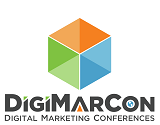



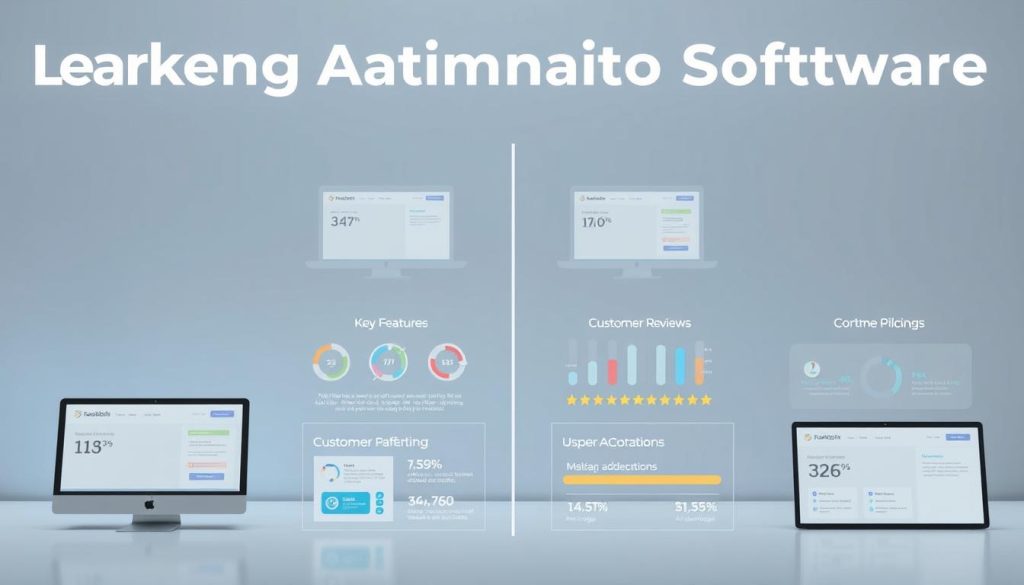



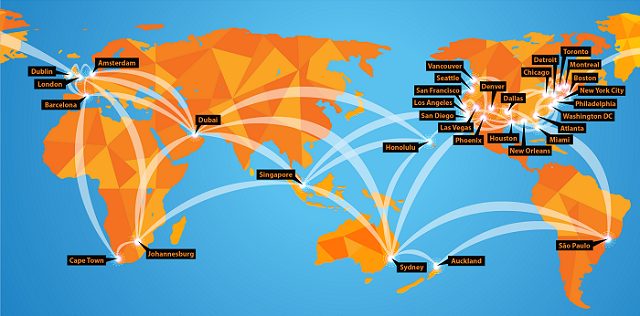


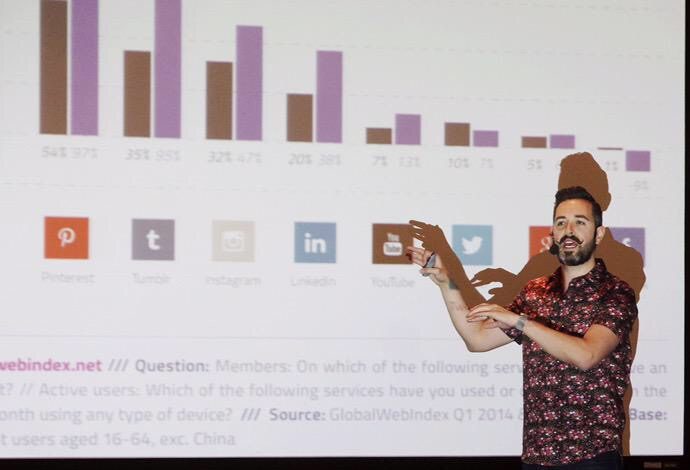










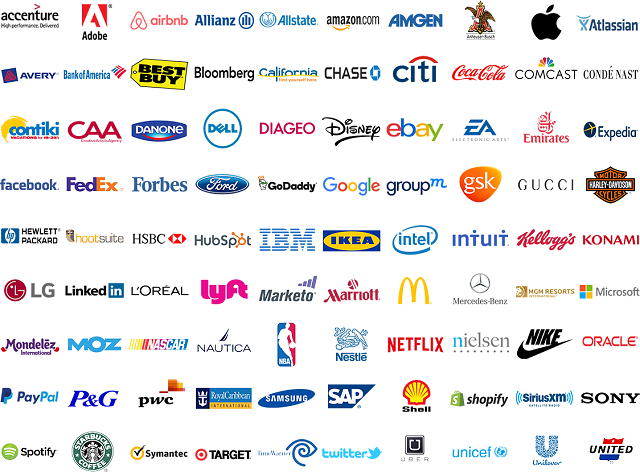














No comments